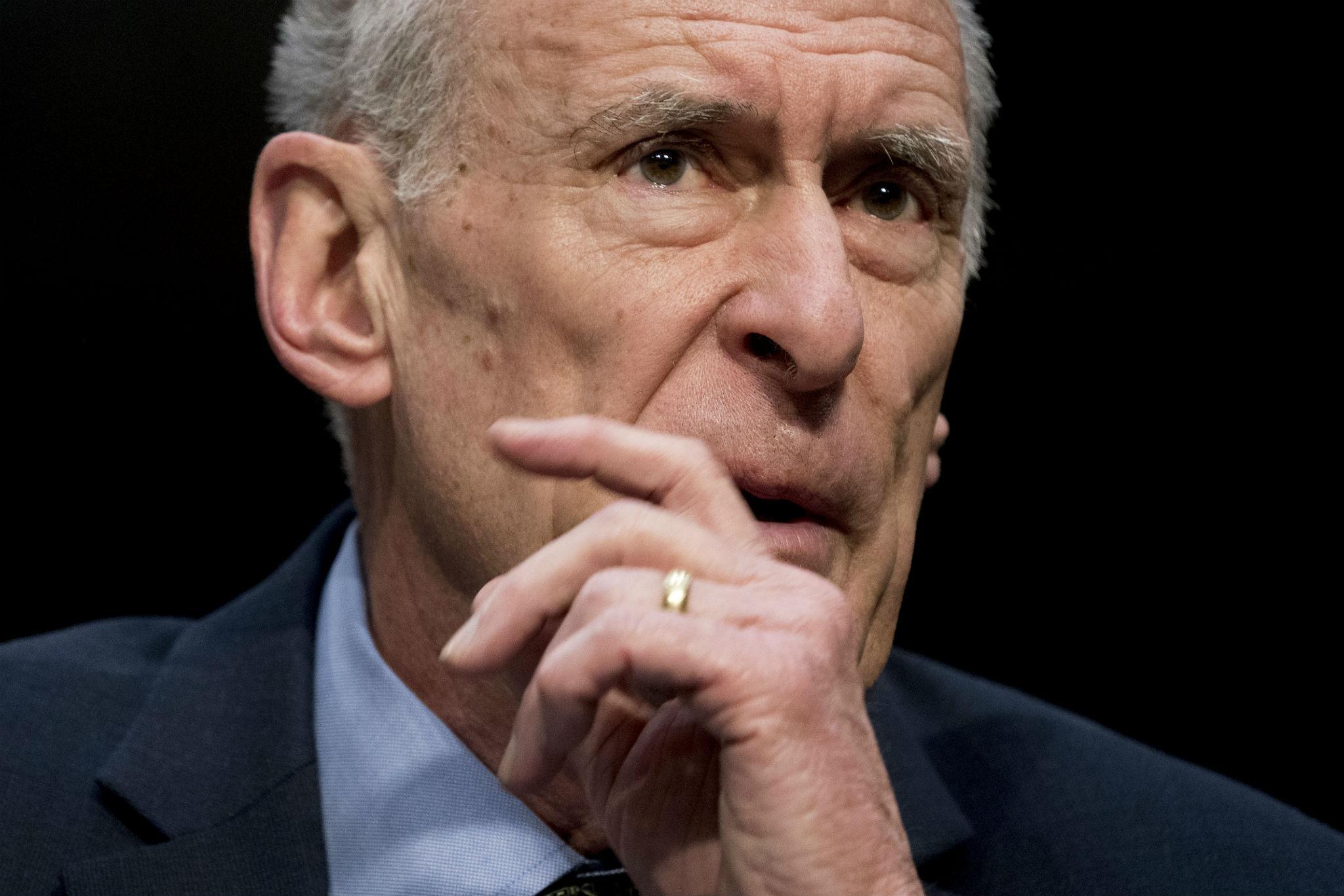Risk of global conflict at highest level since the Cold War, warns US intelligence chief
He says North Korea's unwillingness to 'negotiate its nuclear weapons and missiles away' poses an increasing threat

Your support helps us to tell the story
From reproductive rights to climate change to Big Tech, The Independent is on the ground when the story is developing. Whether it's investigating the financials of Elon Musk's pro-Trump PAC or producing our latest documentary, 'The A Word', which shines a light on the American women fighting for reproductive rights, we know how important it is to parse out the facts from the messaging.
At such a critical moment in US history, we need reporters on the ground. Your donation allows us to keep sending journalists to speak to both sides of the story.
The Independent is trusted by Americans across the entire political spectrum. And unlike many other quality news outlets, we choose not to lock Americans out of our reporting and analysis with paywalls. We believe quality journalism should be available to everyone, paid for by those who can afford it.
Your support makes all the difference.Dan Coats, the US’s Director of National Intelligence, has warned that the risk of a global conflict is higher now than at any time since the Cold War ended.
Mr Coats’s comments came as the Trump administration works to address rising tensions with North Korea over the regime’s nuclear weapons programme. The US is also still reeling from Russian attacks against its election process in 2016, an assault that is expected to be repeated in this year’s midterm elections as Republicans seek to maintain control of Congress.
“The risk of interstate conflict, including among great powers, is higher than at any time since the end of the Cold War,” the official told legislators during a hearing on worldwide threats before the Senate Intelligence Committee.
“The most immediate threats of regional interstate conflict in the next year come from North Korea and from Saudi-Iranian use of proxies in their rivalry,” he added. “At the same time, the threat of state and non-state use of weapons of mass destruction will continue to grow.”
Mr Coats said North Korea’s unwillingness to “negotiate its nuclear weapons and missiles away” poses an increasing threat.
The regime views its nuclear weapons programme, which it has built up in defiance of UN Security Council resolutions, as “critical to its security,” he said.
The intelligence official also noted that “malign actors” like Russia and China would continue to use several tactics, such as cyber warfare, to challenge US influence around the globe.
US spy agencies determined last year that Russia had worked to meddle in the 2016 election. Along with hacking, Russians were found to have purchased pro-Trump adverts on Twitter and Facebook in an attempt to influence public opinion.
Russia denies that it interfered in the presidential race.
The spy agencies’ conclusion spawned multiple congressional and federal probes into the matter, including one by the Senate Intelligence Committee. The inquiries are also seeking to determine whether President Donald Trump’s campaign advisers colluded with the Kremlin.
Investigators have found an adversary in the President, who has cast doubt on the notion that Russia sought to influence the election in his favour, claiming it’s a made-up excuse by the Democrats to explain away Hillary Clinton’s loss. Mr Trump has also denied allegations of collusion.
Mr Coats, along with other intelligence leaders who testified, warned that Moscow is also expected to try to influence future elections, including this year’s midterms in November.
“There should be no doubt that Russia perceives its past efforts as successful and views the 2018 U.S. midterm elections as a potential target for Russian influence operations,” Mr Coats said. “Persistent and disruptive cyber operations will continue against the United States and our European allies using elections as opportunities to undermine democracy.”
He also described a range of ways in which Russia might try to influence this year’s vote.
“At a minimum, we expect Russia to continue using propaganda, social media, false-flag personas, sympathetic spokespeople, and other means of influence to try to exacerbate social and political fissures in the United States,” he said.
The intelligence leaders said they were doing everything they could to work with private companies, such as Facebook, to address the issue.
“We can’t fully police social media,” said FBI Director Christopher Wray. “We have to work with them.”
Mr Coats and Mr Wray spoke alongside CIA Director Mike Pompeo and National Security Agency Director Mike Rogers. The head of the Defense Intelligence Agency, Robert Ashley, and the head of the National-Geospatial-Intelligence Agency, Robert Cardillo, also testified.
Join our commenting forum
Join thought-provoking conversations, follow other Independent readers and see their replies
Comments